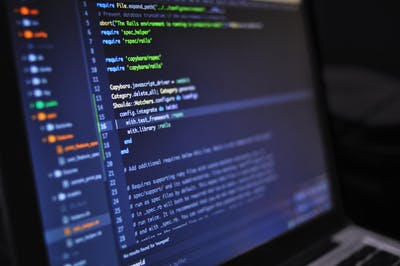Legal Matters
Concerning the legitimacy of monitoring operations, there is a great deal of ambiguity. The fact that there are numerous distinct regulations about what is and is not permissible is among the causes behind this. In the next paragraph, you'll find more discussion on this topic. However, for the time being, you should be aware that the legitimacy of tracking your employees is entirely dependent on the location of your business. However, this does not always rule out the possibility of doing this kind of data collection. There are a few different approaches to consider when evaluating day-to-day actions in light of the rules that govern your community.
Legal Concerns Regarding the Regulation of Employees
- Where can I get a list of the guidelines that regulate supervision in the place of work?
- When is it appropriate to do the monitoring? In what ways does this vary from country to country?
- What steps are necessary to perform before you begin monitoring?
Is it ethical to track a worker's activities?
It is time to confront the obvious issue. There are several myths circulating concerning the legitimacy of data collection, that might discourage you from engaging in the practice. Is it permissible to monitor employees?
To put it simply! According to the regulations governing workplaces, your employer is free to legally observe you at any time. This implies they can access your emails on their system, for example. The sole limitation that exists at this time pertains to telephone conversations. It is against the law for a boss to listen in on an individual's private phone conversations. Except, of course, that worker is aware of this and gives their approval. If a worker is utilising equipment that belongs to their employer for a different purpose, they do not require authorization from their employer.
To protect citizens' confidentiality, certain regions have passed laws.
When employers begin tracking their workers, they should give their workers a warning. Examine to see if any rules are particular to your area when you use any program.
However, the legislation in your nation could be distinct. The states that make up the European Union uphold the principle that workers have a right to confidentiality in the workplace. When it comes to movement monitoring, firms have a responsibility to be increasingly forthcoming. To acquire private information, the EU requires everyone to provide their permission. In addition, people have a right to know why and how the information is being gathered about them. Investigate the legal situation in your nation just in fact.
We strongly advise constantly informing your staff that you intend to implement the program so that you may get the best possible outcomes and establish a sense of confidence in your business. Furthermore, you must describe the primary usage of the product. Data collection methods, timing, and purposes will be transparent to them. It is less probable that you will have to resolve legal difficulties if there is greater openness in the situation.
Is it a Good Fit for You?
Before we go into picking out the top employee tracking program for your company, you must be one hundred per cent confident that this is the greatest option for you. There are a variety of applications for this kind of program that are wholly inappropriate and entirely miss the purpose. However, deciding whether or not you ought to proceed to the following stage is rather straightforward.
Just take the below into consideration:
What are your objectives?
Consider the objectives you want to achieve with your company. Put them in writing and provide room for comments. The following will provide you with a few potential avenues to explore.
- Cut Spending
- Enhance the Quality of Service to Clients
- Secure Information Better
- Keeping Staff Members on Board
- Relocate Business
- Get More Productive
- Establish More Legislative Provisions
- Learn to Be a Better Micromanager.
Will Software for Worker Tracking assist you in achieving these objectives?
Look through everything you've jotted down, and then jot down how activity monitoring might be of use to you.
- Find out whatever program isn't in use, and then uninstall it.
- Conduct an effectiveness review of the representatives' process and examine the findings.
- Obtain warnings about security breaches as they occur via the use of alarms. Using DLP, redact any critical information.
- You may use efficiency analytics to determine whether workers are showing a decreasing level of engagement and then investigate the reasons behind this trend. Demonstrate to your staff that you value their continued presence in the group. Inquire about how you may assist them in feeling more valuable.
- You may be able to move by reducing some of your costs, and then determine if or not this influences the efficiency of your staff.
- Examine the procedure that you use for your company. It is important to reassign personnel who are working on initiatives where their participation is no longer mandatory.
Do I get my money's worth out of using Activity Analysis Software?
This one is a piece of cake. What are the benefits of providing superior support to clients? What about keeping the info secure? More effective use of resources? Greater protection from the law?
Consider how much more it will benefit you to achieve your objectives versus the price of any prospective program. Tracking actions at work is simple and intuitive with the vast majority of tools. But in the end, it is up to you to consider the benefits and drawbacks of the situation.







